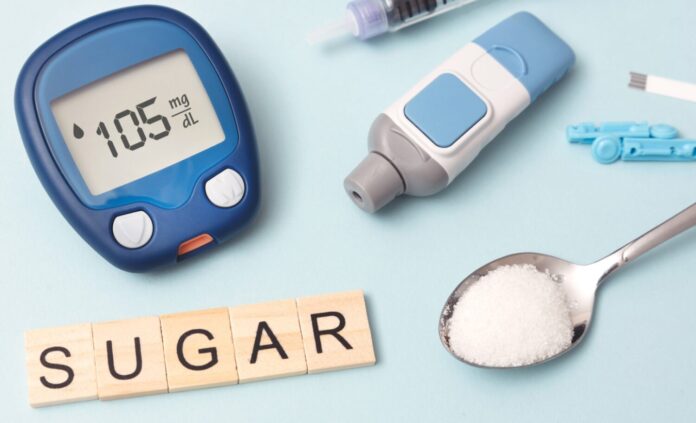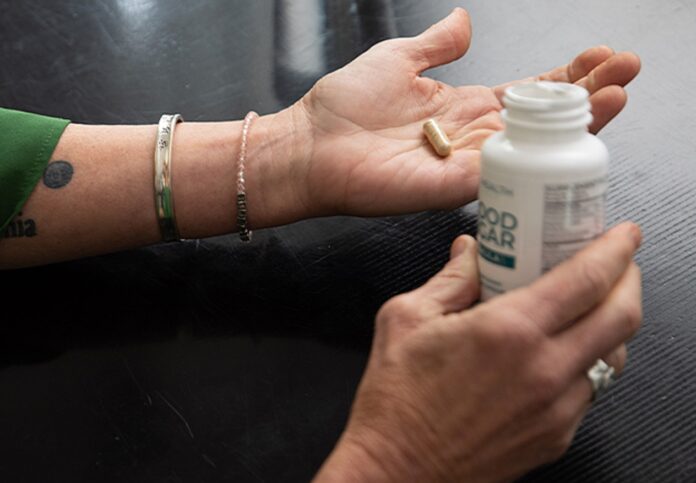In today’s fast-paced and demanding world, many individuals face the challenge of managing their blood sugar levels effectively. The prevalence of sedentary lifestyles, unhealthy dietary habits, and increased stress levels has led to a rise in blood sugar-related issues such as diabetes and prediabetes.
However, armed with the right knowledge and strategies, you can take control of your blood sugar and promote better overall health. In this article, we will explore the various challenges associated with blood sugar in our modern world and provide practical tips to help you maintain stable blood sugar levels.
Understanding Blood Sugar Challenges
Maintaining balanced blood sugar levels is crucial for overall well-being. When our blood sugar levels fluctuate too much or remain consistently high, it can have a detrimental impact on our health. Blood sugar challenges arise from a combination of factors, including poor dietary choices, lack of physical activity, genetics, and stress. These challenges can manifest as insulin resistance, obesity, type 2 diabetes, and other metabolic disorders.
How to Combat The Blood Sugar Challenges
Managing blood sugar challenges can be a complex task, but with the right strategies and lifestyle changes, it is possible to combat them effectively. Here are some practical tips to help you navigate and overcome blood sugar challenges:
1. Healthy Eating Habits

Maintaining healthy eating habits is paramount when it comes to effectively managing blood sugar levels. By adopting a balanced and nutrient-rich diet, you can stabilize blood sugar, prevent sudden spikes and crashes, and promote overall well-being.
To achieve this, it is essential to focus on consuming whole foods that offer a wealth of health benefits:
- Fruits
- Vegetables
- Lean proteins
- Whole grains
These wholesome options have a low glycemic index, which means they cause a slower rise in blood sugar levels compared to processed and refined alternatives.
In addition to choosing the right types of foods, it is also important to consider the role of dietary fiber in blood sugar management. Foods rich in fiber, such as legumes, whole grains, and leafy greens, can help slow down the absorption of glucose in the bloodstream. This gradual release of glucose promotes stable blood sugar levels throughout the day.
Conversely, it is crucial to limit your intake of unhealthy food options like:
- Sugary beverages
- Processed foods
- Refined carbohydrates
These items tend to contain high levels of added sugars and can cause a rapid spike in blood sugar levels. Opt for healthier alternatives, such as water, herbal teas, and natural sweeteners in moderation. Additionally, choose whole grains over refined grains and opt for homemade meals prepared with fresh ingredients whenever possible.
By adopting these healthy eating habits, you can take proactive steps towards managing your blood sugar levels and promoting overall health and well-being. Remember, small but consistent changes in your diet can make a significant difference in your blood sugar control.
2. Regular Exercise

Regular exercise is a key component in effectively regulating blood sugar levels. Engaging in physical activity not only helps with weight management and cardiovascular health but also improves insulin sensitivity, enabling your cells to efficiently utilize glucose for energy.
To reap the maximum benefits, it is recommended to incorporate a variety of exercise types into your routine. Aim for a well-rounded approach that includes aerobic exercises, strength training, and flexibility exercises. This combination helps promote overall fitness and enhance blood sugar control.
- Aerobic exercises, such as brisk walking, jogging, cycling, or swimming, get your heart pumping and increase your breathing rate. These activities help burn calories, improve cardiovascular health, and contribute to better blood sugar regulation. Aim for at least 150 minutes of moderate-intensity aerobic exercise per week or 75 minutes of vigorous-intensity exercise.
- Strength training exercises, such as weightlifting or resistance training, help build muscle mass and improve insulin sensitivity. Including strength training two to three times a week can have a positive impact on blood sugar levels. Focus on working all major muscle groups and gradually increase the intensity and resistance over time.
- Flexibility exercises, such as stretching or yoga, which help improve joint mobility and prevent injuries. Flexibility exercises also promote relaxation and stress reduction, which can indirectly contribute to better blood sugar control. Aim for regular stretching sessions or consider attending yoga classes to enhance your overall fitness routine.
When incorporating exercise into your daily life, it’s important to find activities that you enjoy and that fit into your schedule. This increases the likelihood of long-term adherence. Consider trying different forms of exercise to keep it interesting and stay motivated. It could be dancing, hiking, playing a sport, or taking group fitness classes. Remember to start slowly if you’re new to exercise and gradually increase the intensity and duration over time.
3. Stress Management

Chronic stress can wreak havoc on your blood sugar levels. When you’re stressed, your body releases stress hormones, such as cortisol, which can raise blood sugar levels. It’s important to find healthy coping mechanisms to manage stress effectively. Explore relaxation techniques such as deep breathing exercises, meditation, yoga, or engaging in hobbies that bring you joy. Prioritizing self-care and maintaining a balanced lifestyle can significantly reduce the impact of stress on your blood sugar.
4. Blood Sugar Supplements
In addition to a healthy lifestyle, certain supplements can complement your efforts in managing blood sugar challenges. Blood Sugar Formula, developed by PureHealth Research, is a blood sugar supplement designed to provide support for individuals facing blood sugar challenges. This unique formula is made from 17 minerals, vitamins, and plant extracts, each proven to help restore glucose levels and increase glucose sensitivity:
- Vitamin C, for instance, serves as a powerful antioxidant that combats free radical damage, promotes optimal blood vessel function, and contributes to maintaining balanced blood glucose levels.
- Biotin, another vital component, plays a role in increasing glucose hormones during normal glycemic and hyperglycemic conditions. Additionally, biotin aids in the synthesis of glucose from non-carbohydrate sources, adding to its potential benefits in blood sugar regulation.
- Magnesium in the formula is significant, as it supports numerous essential metabolic processes and enzymes. This mineral is particularly important for promoting healthy glucose sensitivity, allowing cells to efficiently utilize glucose for energy production.
- Zinc, on the other hand, plays a crucial role in the metabolism of glucose hormones. By aiding in this process, zinc helps lower blood sugar levels and contributes to overall blood sugar regulation.
- Copper, an often-overlooked mineral, plays a vital role in converting food into fuel energy. This conversion process is essential for maintaining optimal blood sugar levels. Furthermore, copper also assists in regulating blood fats, adding an extra layer of support for individuals navigating blood sugar challenges.
It’s important to note that while supplements can be a valuable addition to a healthy lifestyle, they should not replace the foundation of proper nutrition, regular exercise, and other essential blood sugar management strategies. It’s always recommended to consult with a healthcare professional before incorporating any new supplement into your routine, especially if you have existing health conditions or are taking medications.
5. Regular Monitoring

To effectively navigate blood sugar challenges, it is essential to monitor your levels regularly. Blood glucose monitoring devices are widely available, enabling you to check your levels at home. By understanding how your body responds to different foods, activities, and stressors, you can make informed decisions to maintain stable blood sugar levels. Regular monitoring also allows you to identify any patterns or trends that may require adjustments to your lifestyle or treatment plan.
6. Professional Guidance

If you are facing significant blood sugar challenges or have been diagnosed with diabetes, it’s crucial to work closely with healthcare professionals. They can provide personalized guidance, help you create a tailored meal plan, and offer support in managing your blood sugar effectively. Regular check-ups, blood tests, and consultations with a registered dietitian or diabetes educator can empower you to make informed decisions about your health.
Final Thoughts
In conclusion, navigating blood sugar challenges in the modern world requires a holistic approach. By adopting healthy eating habits, engaging in regular exercise, managing stress, and monitoring your blood sugar levels, you can take control of your well-being.
Additionally, consider incorporating natural supplements into your routine to support healthy blood sugar levels. Remember, small lifestyle changes can make a significant difference in your journey toward optimal blood sugar balance.
Disclaimer: The information provided in this article is for educational purposes only and should not replace professional medical advice. Always consult with your healthcare provider before starting any new dietary or supplement regimes.










